Three major breakthroughs of the draft law
On the morning of November 5, continuing the 10th Session, the National Assembly held a group discussion session on the draft Law on Civil Judgment Enforcement (amended). Speaking at the discussion session at Group 1 ( Hanoi City Delegation), delegate Do Duc Hong Ha said that the draft Law on Civil Judgment Enforcement (amended) has 3 important new points, a breakthrough in order to overcome difficulties, obstacles, and problems that have existed in the past and meet the requirements of restructuring the apparatus.
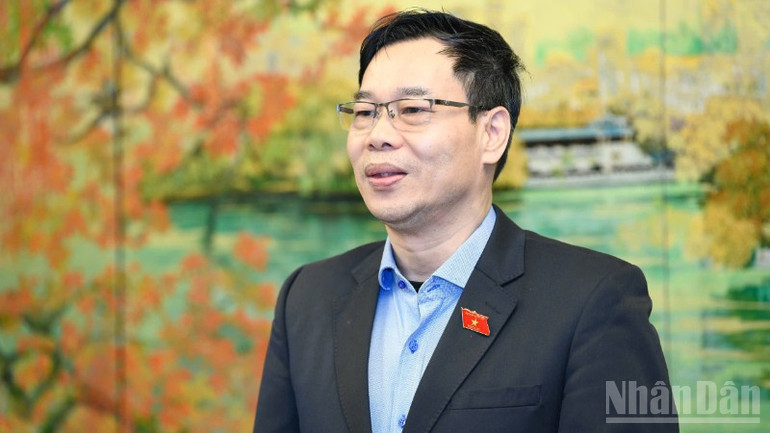
Firstly, reform and reorganize the system of civil judgment enforcement agencies in a streamlined and effective manner. Accordingly, the draft law abolishes the model of the district-level Civil Judgment Enforcement Sub-Department, replacing it with a one-level agency system at the provincial level; establishes a regional Civil Judgment Enforcement Office under the provincial Civil Judgment Enforcement Department to perform tasks at the grassroots level. This organization helps to concentrate on directing, operating, mobilizing enforcement officers and resources more effectively, especially in handling complicated cases.
Second, promote the socialization of civil judgment enforcement, formalize and enhance the legal status of non-state judgment enforcement organizations. The draft devotes a separate section to the Civil Judgment Enforcement Office and the Bailiff, renaming the Bailiff Office as the Civil Judgment Enforcement Office; stipulates that this is an organization practicing judgment enforcement operating in the form of a partnership; and at the same time, grants the right to organize judgment enforcement at the request of litigants for judgments and decisions under its jurisdiction.
Delegates analyzed that this creates a legal corridor for a new enforcement entity, in line with the policy of socialization, helping to reduce the burden on state agencies and improve professionalism.
Third, comprehensively promote digital transformation and application of information technology in civil judgment enforcement. The draft law has added a separate provision on the application of information technology, clearly regulating the construction, management and operation of the database on judgment enforcement; the responsibility of connecting and sharing data of national and specialized database management agencies with the judgment enforcement database; affirming the legal value of electronic documents, records and digital signatures. This is considered a breakthrough in the organization of judgment enforcement, helping to improve speed, efficiency, transparency and reduce negativity.
Ensuring feasibility and substance in execution of judgments

During the discussion, delegate Le Nhat Thanh agreed with the content of the Submission and the Report on the review of the draft law, and at the same time requested the drafting agency to continue to perfect the regulations on the application of information technology and digital transformation in the enforcement of civil judgments, in a specific, practical and feasible direction.
He pointed out that the draft law has added many important new points such as notification of judgment enforcement by electronic means, payment of judgment enforcement money by bank transfer, verification of judgment enforcement conditions through the national database, and especially separate regulations on digital transformation in civil judgment enforcement.
Delegates proposed to continue to specify these contents in the decree guiding implementation, and at the same time study and supplement regulations recognizing the legal value of execution procedures carried out in the electronic environment.
Regarding the responsibilities of agencies, organizations and individuals in the enforcement of civil judgments, delegate Le Nhat Thanh emphasized that the effectiveness of this work depends not only on the enforcement agency and enforcement officers, but is also closely linked to the coordination of relevant agencies, organizations and individuals.
Therefore, it is necessary to clearly define the responsibilities of agencies such as the State Treasury, banks, property registration agencies, police agencies, social insurance agencies... as well as the state management role and coordination responsibilities of People's Committees at all levels in the process of organizing the execution of judgments.
Avoid socialization that is just a formality
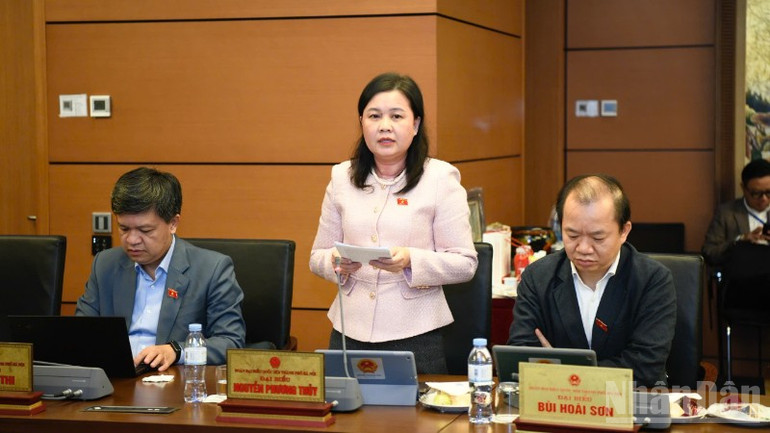
Delegate Nguyen Phuong Thuy said that the reorganization of the local civil enforcement agency system is necessary to ensure streamlining, effectiveness and efficiency, but it is necessary to clarify the legal status and operating mechanism of the Regional Enforcement Office to avoid administrative procedures and ensure the initiative of the enforcement team.
“We do not create more apparatus, do not create intermediate levels, but there must be a mechanism for people to be empowered and proactive in implementation, avoiding the situation where due to arrangement requirements, administrative procedures eventually arise, especially in large localities with great geographical distances. If we do not promote digital transformation to support, the implementation of administrative procedures will be difficult,” the delegate stated.
She also suggested carefully considering changing the name of the Bailiff Office to the Civil Judgment Enforcement Office and the title of Bailiff, because the Bailiff system has been operating stably for many years, promoting efficiency and people have gradually become familiar with this concept. The change needs to be carefully assessed in terms of social costs, inheritance and transitional regulations to avoid problems arising during the implementation process.
Regarding the activities of the Civil Judgment Enforcement Office, the female delegate emphasized that when assigning authority to non-state organizations to participate in the enforcement of judgments, it is necessary to allow them to use appropriate tools to ensure the performance of their duties, avoiding the situation of formal socialization.
The delegate gave examples of measures to ensure the execution of judgments that these offices are not allowed to implement, such as temporarily holding documents; or when organizing the enforcement of judgments, they are not allowed to mobilize support forces. This is related to the feasibility of legal regulations.
Source: https://nhandan.vn/day-manh-chuyen-doi-so-xa-hoi-hoa-thi-hanh-an-dan-su-post920694.html



![[Photo] Opening of the 14th Conference of the 13th Party Central Committee](https://vphoto.vietnam.vn/thumb/1200x675/vietnam/resource/IMAGE/2025/11/05/1762310995216_a5-bnd-5742-5255-jpg.webp)





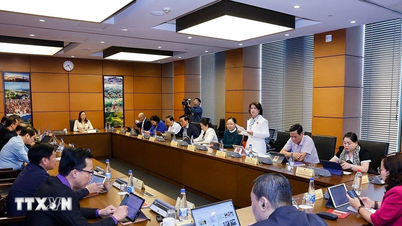



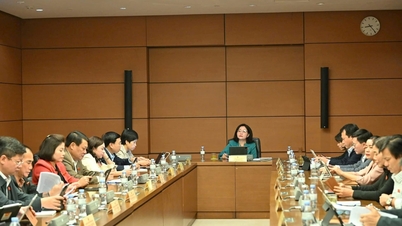

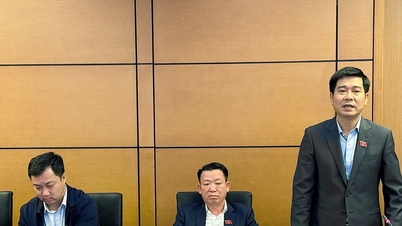
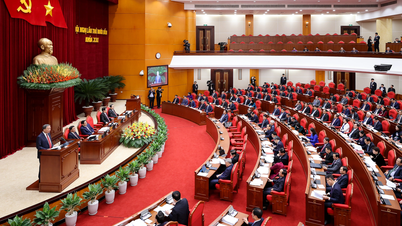






![[Photo] Discover Con Ho on the Co Chien River](https://vphoto.vietnam.vn/thumb/402x226/vietnam/resource/IMAGE/2025/11/05/1762321199846_1-64-jpg.webp)




![[Photo] Panorama of the Patriotic Emulation Congress of Nhan Dan Newspaper for the period 2025-2030](https://vphoto.vietnam.vn/thumb/1200x675/vietnam/resource/IMAGE/2025/11/04/1762252775462_ndo_br_dhthiduayeuncbaond-6125-jpg.webp)
















































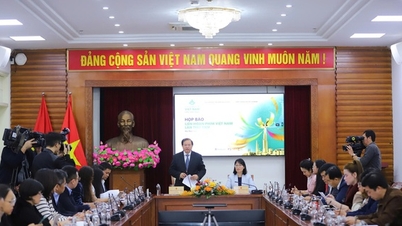



























Comment (0)